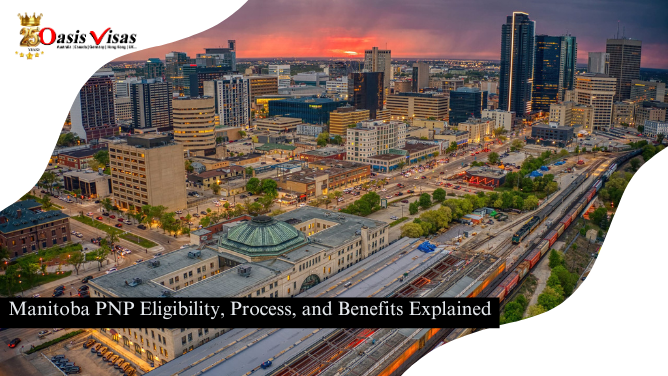
Among the most important documents required by international students in Canada, the Provincial Attestation Letter (PAL) is one of them. Canada is one of the most popular destinations for international students due to its high-quality education system, diverse culture, and welcoming environment. Every year, thousands of students from all around the globe choose Canada as their study destination. However, navigating the immigration and documentation process can sometimes be challenging.
This Provincial Attestation letter is important for students who wish to transition from studying to working or applying for permanent residency in Canada. Knowing the importance and purpose of the Provincial Attestation Letter can help students better prepare for their future in Canada.
What is a Provincial Attestation Letter (PAL)?
A PAL is an official document issued by a province or territory in Canada that confirms an international student has completed a designated program of study. This letter serves as proof that the student has met the requirements of their program and is eligible for specific immigration pathways, such as the Post-Graduation Work Permit (PGWP) or provincial nominee programs (PNPs).
The PAL guarantees that the student’s achievements in school are well noted and enables him to go ahead in the course of setting up a career in Canada.
Why is the Provincial Attestation Letter Important?
For international students, the PAL is more than just a document; it is a gateway to numerous opportunities in Canada. Without this letter, students may face difficulties in obtaining work permits or applying for permanent residency. Here are some key reasons why the PAL is essential:
- Eligibility for Work Permits: Most work permits, including the PGWP, require proof of program completion. The PAL serves as this proof, ensuring that students can transition from studying to working in Canada without any issues.
- Provincial Nominee Programs (PNPs): Provinces and territories often use the PAL to verify a candidate’s eligibility for nomination under their specific programs. This can fast-track the pathway to permanent residency.
- Recognition of Academic Achievements: The PAL authenticates the time put into international students’ studies, giving them legitimacy in the eyes of employers and immigration authorities.
- Support for Immigration Applications: Immigration processes here in Canada can be quite docile. The PAL eases up this process since it will act as a very reliable piece of evidence for applications.
How to Get a Provincial Attestation Letter?
Obtaining a PAL is easy; however, a student has to fulfill some eligibility criteria. The steps for it are as follows:
- Complete Your Program: You should have completed your program at a Designated Learning Institution (DLI) in Canada. That DLI must be recognized by the province or territory.
- Contact Your Institution: Reach out to your registrar’s office or the student services at your educational institution, and they should be able to guide you further on what is required to request a PAL.
- Provide Necessary Documents: You will need to produce supporting documents, including your transcript, graduation certificate, or proof of completion of your program.
- Wait for Processing: Processing times for the Provincial Attestation Letter vary between province and institution. It is better to apply as early as possible to avoid delays.
- Receive Your PAL: You will have the PAL delivered to you either electronically or on paper, according to the guidelines of the province.
Which Provinces Require a Provincial Attestation Letter?
The PAL is relevant all across Canada, although the requirements or uses of a PAL may be different in some provinces. For example:
- In British Columbia and Ontario, PAL is often used for graduates seeking PNPs.
- PAL is a mandatory requirement for a transition into AAIP in Alberta.
- Quebec may have different rules due to its unique system, but a similar letter would be required for some programs.
You should always check the specific requirements of the province where you studied to ensure that you get an understanding of how the PAL will affect your immigration plans.
Challenges in Obtaining a PAL
While the process for obtaining a PAL is usually fairly straightforward, students sometimes face some hitches:
- Longer Processing Periods: For instance, students may experience some delays in acquiring their PALs because of increased demand, mainly during graduation periods.
- Inadequate Documentation: Failure to attach all the mandatory documents may result in either delayed or failed requests.
- Provincial Variations: Each province has its rules and processing times, which can be confusing for the students who are not familiar with the system.
- Unawareness: Most of the students are unaware of the importance of the PAL, and they might delay their application, which would affect their immigration timelines.
Tips for International Students
To ensure a smooth process in getting your Provincial Attestation Letter and maximizing its benefits, here are some tips:
- Plan ahead. Try to begin the process for your PAL once you complete your program to avoid last-minute stress.
- Stay informed: Stay updated with the requirements in your province and the institution that you attended school in.
- Seek guidance: Seek help from student services at your institution or immigration consultants if you need guidance on the process.
- Keep Copies: You will get a PAL; then make digital and physical copies for later use.
- Know How It Fits: Understand how the PAL fits into your larger immigration and career plans in Canada.
The Provincial Attestation Letter is one of the crucial documents for international students in Canada, who aim to transition from academic life into professional or permanent residency pathways. Validates your educational qualification and is key to work permit and provincial nomination programs.
Awareness of the requirement for the PAL and the processes involved will only help students circumvent unnecessary setbacks and delays that may arise for them. Whether you’re applying for a work permit or aiming for permanent residency, the Provincial Attestation Letter ensures you have the support and recognition needed to achieve your goals in Canada.











